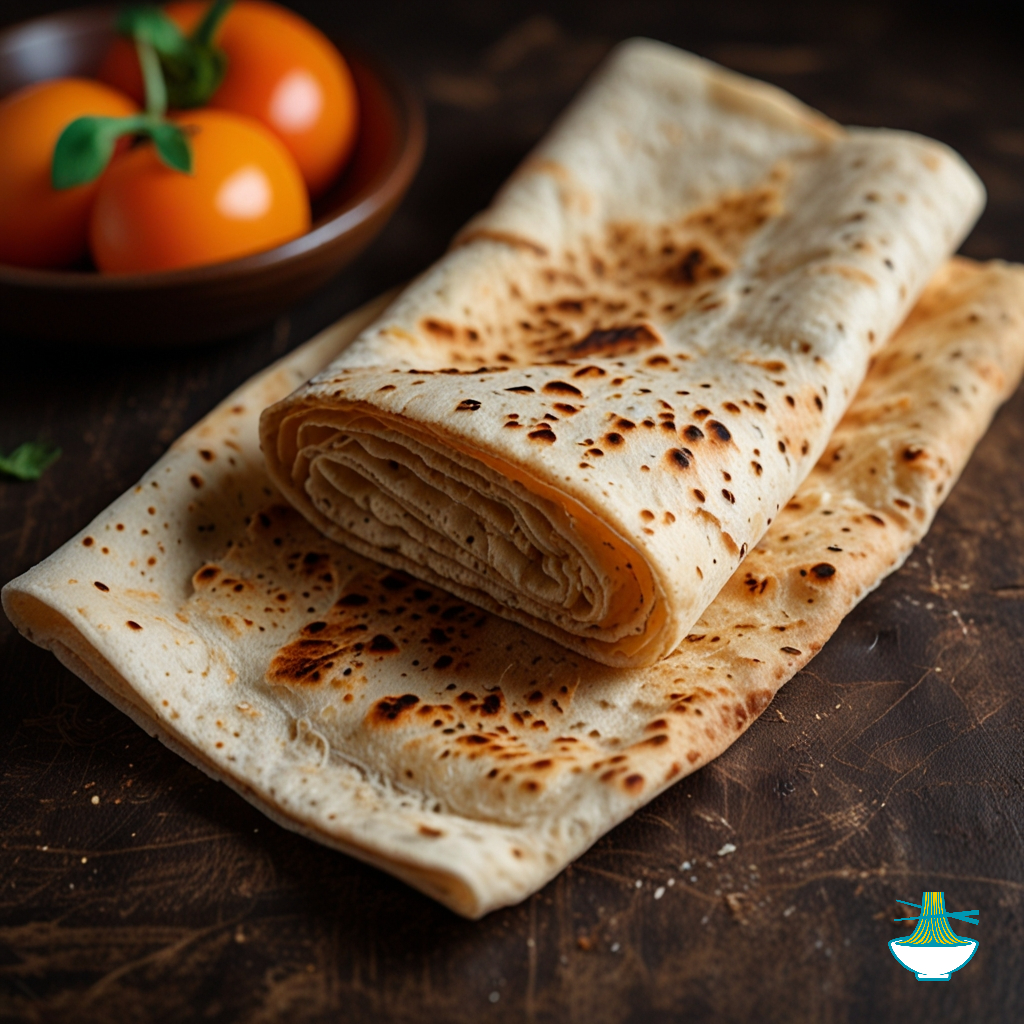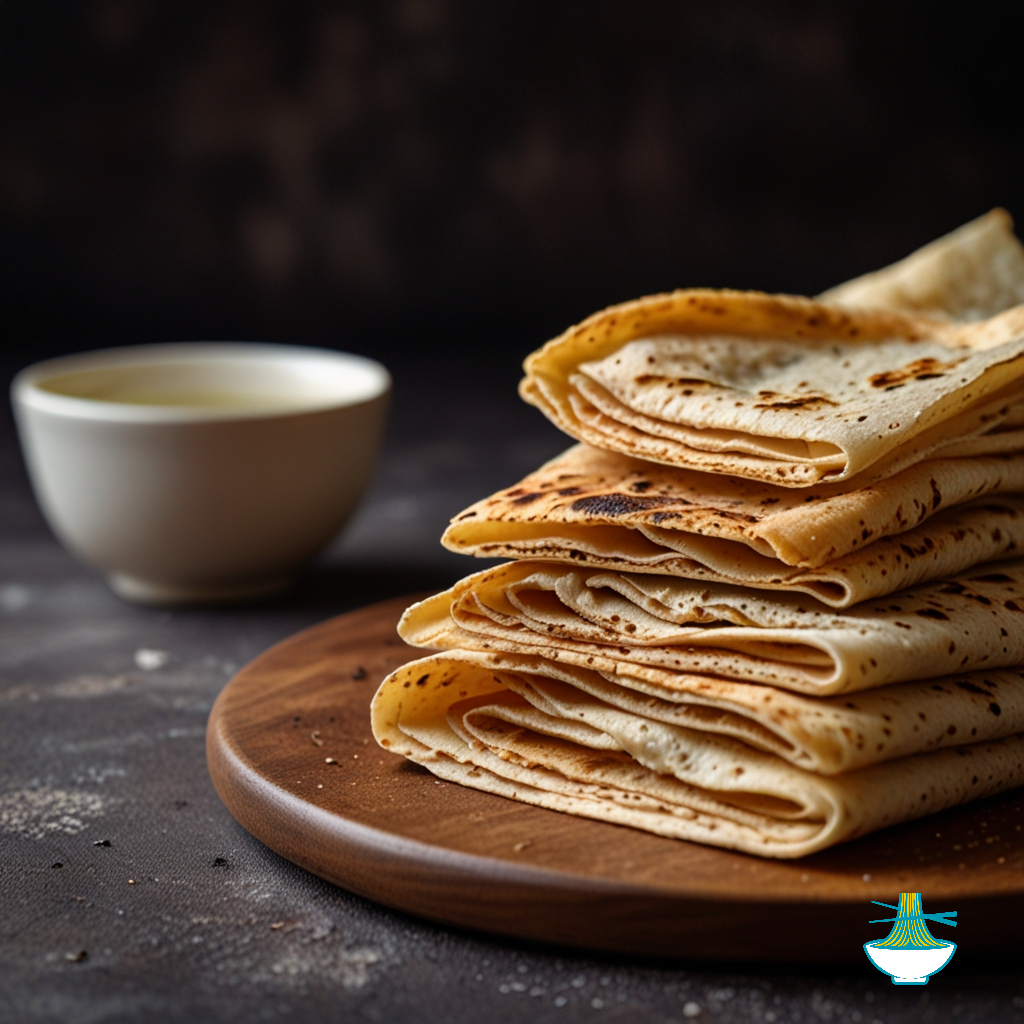Chekich is a delectable type of thin, crispy bread akin to lavash, originating from Central Asia. This unleavened bread is cherished for its light texture and delightful crunch, making it a popular choice for various meals and snacks. Its simplicity in ingredients and preparation process makes it accessible to home cooks and a staple in many cuisines.
The history of chekich traces back centuries, deeply rooted in the culinary traditions of Central Asia, particularly Uzbekistan, Tajikistan, and Kazakhstan. Originally crafted by nomadic communities, chekich served as a convenient and durable source of sustenance during long journeys across the vast steppes of Central Asia.
Over time, chekich became emblematic of Central Asian cuisine, evolving with regional variations and culinary influences. Its enduring popularity can be attributed to its versatility, shelf stability, and delicious taste. Today, chekich continues to be enjoyed across the globe, celebrated for its rich cultural heritage and timeless appeal.
Ingredients:
- 2 cups all-purpose flour
- 1 teaspoon salt
- 1 tablespoon vegetable oil
- ¾ cup warm water

Method of Preparation:
1. In a large mixing bowl, combine the all-purpose flour and salt.
2. Make a well in the center of the flour mixture and add the vegetable oil.
3. Gradually pour in the warm water while stirring the mixture with a spoon or your hands until a dough forms.
4. Knead the dough on a lightly floured surface for about 5-7 minutes, or until it becomes smooth and elastic.
5. Divide the dough into 6 equal portions and shape them into balls.
6. Roll out each dough ball into a thin circle, approximately 8-10 inches in diameter.
7. Heat a non-stick skillet or griddle over medium heat.
8. Place one dough circle onto the heated skillet and cook for about 1-2 minutes on each side, or until golden brown spots appear and the bread becomes crisp.
9. Repeat the process with the remaining dough circles.
10. Once cooked, transfer the chekich bread to a plate and allow it to cool slightly before serving.
11. Enjoy your homemade chekich bread plain or with your favorite dips, spreads, or toppings.
Nutrition Value:
1. 2 cups all-purpose flour:
- Calories: Approximately 800 kcal
- Carbohydrates: Approximately 176 grams
- Protein: Approximately 22 grams
- Fat: Approximately 2 grams
- Sodium: Approximately 4 milligrams
- Cholesterol: 0 milligrams
- Vitamins: Contains small amounts of vitamins B1, B2, and niacin
- Minerals: Contains small amounts of iron and calcium
- Nutritional Benefit: All-purpose flour provides carbohydrates for energy, a moderate amount of protein for muscle repair and growth, and small amounts of essential vitamins and minerals. However, it is low in fiber and may cause blood sugar spikes in some individuals.
2. 1 teaspoon salt:
- Calories: 0 kcal
- Carbohydrates: 0 grams
- Protein: 0 grams
- Fat: 0 grams
- Sodium: Approximately 2,325 milligrams
- Cholesterol: 0 milligrams
- Vitamins: No significant vitamin content
- Minerals: Consists primarily of sodium
- Nutritional Benefit: Salt is used for flavor enhancement in cooking and baking. However, excessive consumption of sodium can contribute to high blood pressure and other health issues, so it should be used in moderation.
3. 1 tablespoon vegetable oil:
- Calories: Approximately 120 kcal
- Carbohydrates: 0 grams
- Protein: 0 grams
- Fat: Approximately 14 grams
- Sodium: 0 milligrams
- Cholesterol: 0 milligrams
- Vitamins: Contains vitamin E
- Minerals: Contains small amounts of vitamin K
- Nutritional Benefit: Vegetable oil provides healthy fats, specifically unsaturated fats, which are essential for cell structure, hormone production, and nutrient absorption. It also contains vitamin E, an antioxidant that helps protect cells from damage.
4. ¾ cup warm water:
- Calories: 0 kcal
- Carbohydrates: 0 grams
- Protein: 0 grams
- Fat: 0 grams
- Sodium: 0 milligrams
- Cholesterol: 0 milligrams
- Vitamins: No significant vitamin content
- Minerals: No significant mineral content
- Nutritional Benefit: Water is essential for hydration and helps regulate body temperature, transport nutrients, and eliminate waste products. While it does not provide macronutrients or significant vitamins and minerals, it is vital for overall health and well-being.


Comments